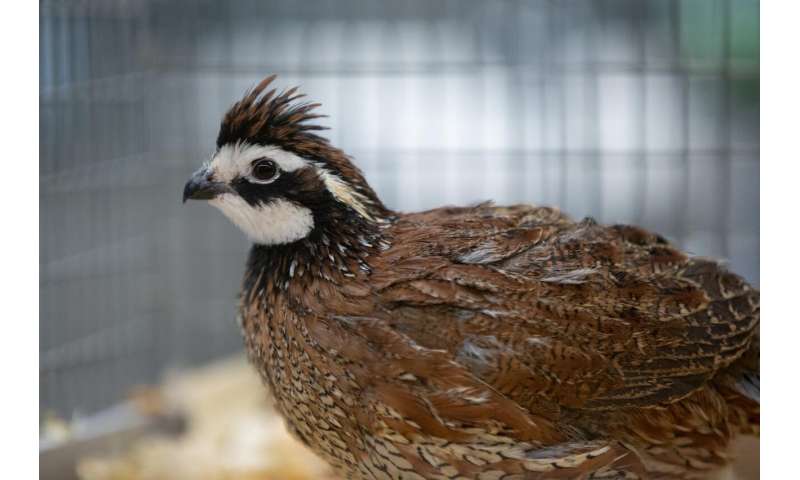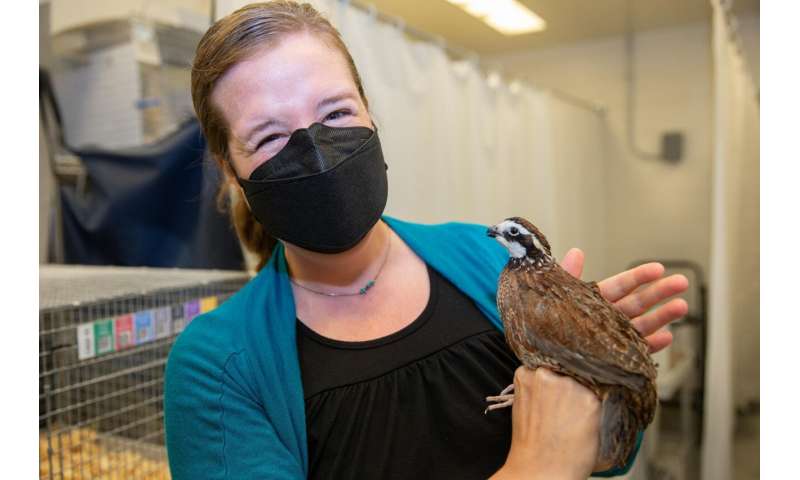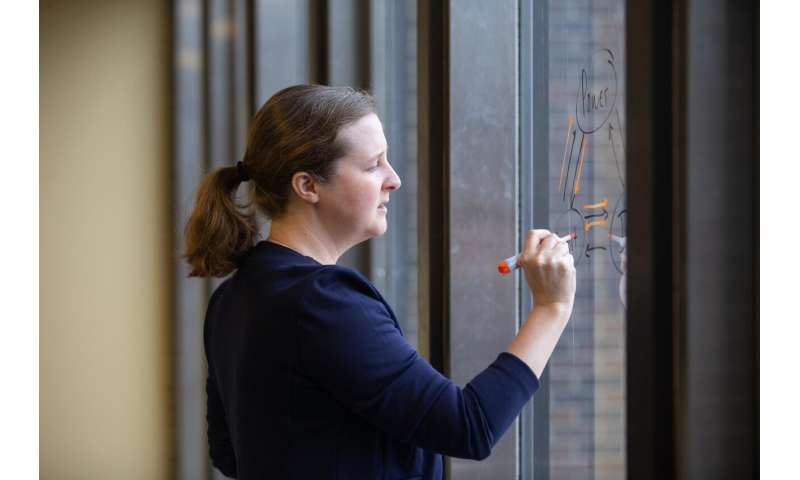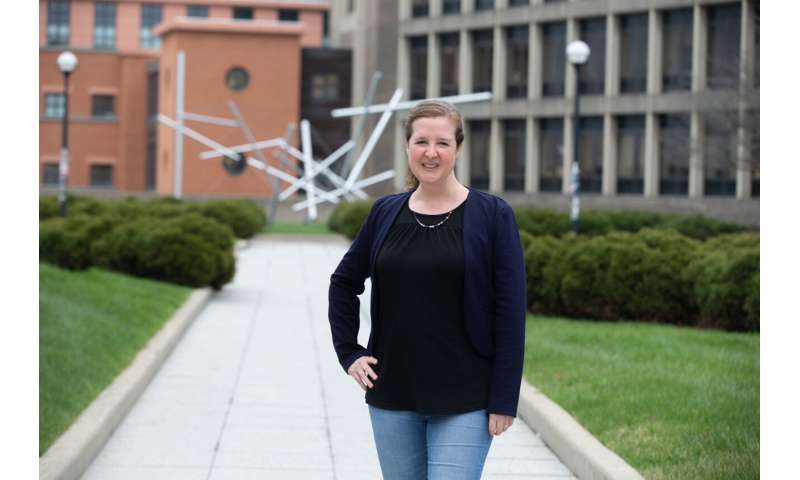Biologist unlocks secrets of animal sociality

It's easy for students in Elizabeth Hobson's lab at the University of Cincinnati to get attached to their study subjects.
The assistant professor in UC's College of Arts and Sciences is a behavioral ecologist who examines the roles of sociality and cognition in animals, what they know and remember about their place in those societies and how they use that knowledge to their advantage. She uses behavioral experiments and computational methods to infer what animals need to know about their social worlds based on how they choose to interact with each other.
Students get firsthand experience studying social behaviors such as dominance hierarchies, or pecking orders, in birds such as monk parakeets and bobwhite quail in her lab. Students also study a fish model: colorful bettas that are known for their beautiful but aggressive displays among males.
Hobson was recognized this year with the Outstanding New Investigator Award from the Animal Behavior Society.
"It's a huge honor. My first article as lead author was published in the Animal Behavior journal and I've been going to Animal Behavior Society conferences since 2006. I've had a long connection with them," Hobson said.
-

University of Cincinnati behavioral ecologist Elizabeth Hobson is using a National Science Foundation grant to design new behavioral experiments for bobwhite quail, monk parakeets and bettas in her biology lab. Credit: Andrew Higley -

University of Cincinnati Assistant Professor Elizabeth Hobson brainstorms new animal behavior experiments on a window overlooking UC's campus. Credit: Andrew Higley
Hobson has been busy designing new experiments as a recipient of the prestigious National Science Foundation Faculty Early Career Development Program grant, which recognizes the promising work of 500 researchers nationwide each year. The grants support faculty who have the potential to serve as role models in research and education and to lead advances in their specialty.
Hobson's new experiments will focus on how social species like parakeets structure their societies, and will determine the relative importance of power, social support, and information within groups.
"This new phase is exciting because I've been working mainly on aggression, rank and hierarchies with the parakeets. But we know that aggression isn't everything," Hobson said.
"This new series of experiments will also look at the role of friendlier interactions—how birds might work to support each other socially in non-aggressive ways—and also at information; how knowing about each other's relationships may provide an advantage."
Hobson has ambitious research plans involving new experiments that will allow her to draw comparisons of social structures across species such as the parakeets, quail and fish she studies in her lab.
"By having these very similar experimental setups and doing all the analyses within the same lab, we have a lot of control over the process," she said.
She joined UC in 2019 after earning a doctorate from New Mexico State University and completing two postdoctoral fellowships. She also serves as an associate editor for the journals Ornithology and npj Complexity as well as serving on the editorial board for the journal Behavioral Ecology.
In her lab, she mentors postdoctoral researchers, graduate students and even undergraduate biology students who get a chance to work on original research projects. Her lab has examined the behavior of a myriad of species from ants to penguins to parrots.
Members of Hobson's research team are applying what they learned in her lab to their own budding careers. UC doctoral student Darby Moore was featured this year in a nature documentary for her work with endangered great green macaws in Costa Rica. Magazine Scientific American highlighted the expertise of Hobson Lab postdoctoral researcher Grace Smith-Vidaurre in a story about the amazing adaptability of invasive parrots.

Caring daily for the animals in the lab has its own rewards.
"Everyone loves the bobs," recent UC graduate Sophia Clemen said of the bobwhite quail. "They definitely have their own personality quirks."
Hobson said she is excited about what they might discover next.
"We built up a good foundation of exploring social systems, rank and dominance hierarchies. Now we can go in and understand the details," she said.
Provided by University of Cincinnati